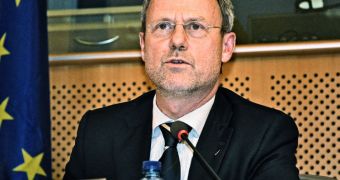Top European officials meeting at a hearing this week agreed that space assets will play a key role in allowing us to monitor, adapt, and fight against climate change and global warming. The phenomena are taking a turn for the worst, and using satellites to keep track of them might be the best idea yet.
Statements along these lines were made on February 2, at a meeting of the European Parliament's Sky and Space Intergroup, which was held in Brussels, Belgium.
The conference was called the Hearing on Space Systems and Key Assets for Climate Change Monitoring and Adaptation Strategies. The European Commissioner for DG Climate Action, Connie Hedegaard, also participated at the meeting, and gave a speech as well.
She went on to highlight the importance of organizing datasets obtained from satellites into viable databases, to be used for climate models, developing policies, extracting long-term trends and also future reference.
“Today, we are focusing on the tools needed for the International Climate Change Policy Regime. In that respect, space is not just nice to have; it's a need to have,” Commissioner Hedegaard told attendants.
“We need science, knowledge and facts to formulate European policies. With those policies in place, we then need the tools to monitor them,” she said for members of the European Parliament, the European Commission, the European space industry and national governments.
The official also went on to talk about the usefulness of having the Galileo satellite navigation system up and running as soon as possible. She explained that the system has other advantages other than providing actual navigation data, too.
“The transport sector accounts for 27% of all European emissions. Satellite navigation can help develop intelligent traffic systems to limit those emissions,” the Commissioner revealed.
Volker Liebig, ESA's Director of Earth Observation Programmes, Lars Prahm, Director General of Eumetsat, and Evert Dudok, President of ASD–Eurospace, explained how space technology is supporting Europe’s climate policies.
Volker Liebig, the Director of Earth Observation Programs at ESA, also drew attention to programs that are not as well known as Galileo, including those to launch the GMES and Sentinel satellites.
“With GMES and the Sentinel satellites, we are trying to achieve an environmental and climate monitoring system comparable to what we achieved for meteorology, some 30 years ago,” the official said at the meeting.
“The Sentinel satellites ESA is developing for GMES will, for example, provide the data necessary to make annually updated worldwide land-cover maps,” he concluded.

 14 DAY TRIAL //
14 DAY TRIAL //